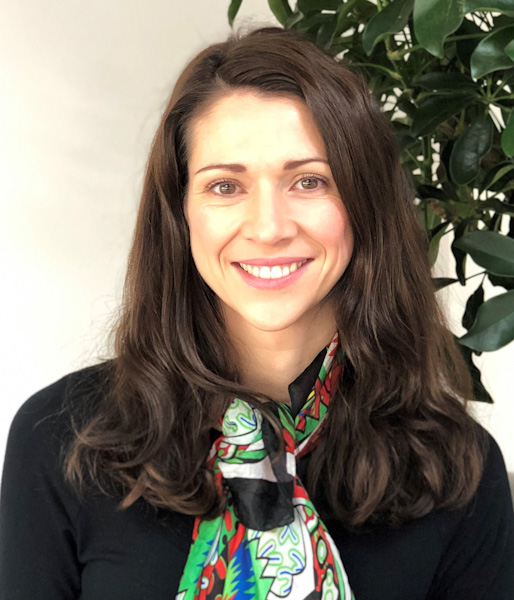[ad_1]
Ari Kaplan not too long ago spoke with Chantelle Jalland, a London-based managing director for digital investigations and discovery with J.S. Held, a worldwide consulting firm.
They mentioned how the strategy to digital investigations and e-discovery has advanced over the previous decade, the forms of litigation issues through which different authorized companies are probably the most applicable, and the way generative AI will have an effect on digital investigations and discovery.
Ari Kaplan: Inform us about your background and your function at J.S. Held.
Chantelle Jalland: I certified as a solicitor in Australia and moved to the U.Okay. about 15 years in the past. For the final 11½ years, I labored at Herbert Smith Freehills in its e-discovery division, serving groups in London, New York and Sydney, and serving to them work extra seamlessly and effectively. I moved to J.S. Held in November 2023, and a giant a part of my function is to develop the digital investigations and discovery follow in EMEA by specializing in a wider vary of issues with legislation companies and company authorized departments.
Ari Kaplan: How has the strategy to digital investigations and e-discovery advanced over the previous decade?
Chantelle Jalland: It has modified considerably. Other than eliminating most paper information in e-discovery, it’s a lot simpler to steer attorneys to make use of technology-assisted assessment as a normal follow. They’re extra conscious of litigation assist practices and acknowledge the worth of those instruments. The query has modified from whether or not to make use of them to which instruments to deploy, so our recommendation is
changing into extra advanced as we think about the method and aligning the expertise to optimize it.
Ari Kaplan: How do the variations within the litigation processes between the U.Okay. and the U.S., amongst different jurisdictions, have an effect on the e-discovery strategy in every area?

Chantelle Jalland is a London-based managing director for digital investigations and discovery with J.S. Held, a worldwide consulting firm.
Chantelle Jalland: I believe that the processes between Australia and the U.S. are way more distinct than these between the U.Okay. and the U.S., which have a number of similarities. In fact, the Federal Guidelines of Civil Process within the U.S. differ from the Civil Process Guidelines within the U.Okay., however essentially, folks need to cooperate. A decade in the past, there have been extra ways within the U.Okay. related to disclosure, however in the present day, the events acknowledge the worth of collaboration and cooperation. In terms of manufacturing, the main target is on danger discount, a shared concern within the U.S. and the U.Okay. In Australia, nevertheless, they apply weird strategies in disclosure workouts by changing all ingested knowledge to PDF variations, which materially will increase the overall quantity of knowledge, which might be fairly wasteful and results in issues about sustainability. Knowledge storage prices cash, and authorized groups ought to reduce the set to what they should scale back danger and expense. There’s a shift in Australia, which is issuing manufacturing protocols which might be extra in keeping with the processes within the U.Okay. and the U.S.
Ari Kaplan: For what forms of litigation issues are different authorized companies the suitable resolution?
Chantelle Jalland: I can not consider any matter the place you shouldn’t think about the usage of different authorized companies. They will save a lot money and time that they could be a transformative possibility in litigation of any dimension.
Ari Kaplan: Have shopper expectations of authorized expertise deployment modified?
Chantelle Jalland: Sure, notably since most shoppers are technologically savvy and are very conversant in lots of the instruments accessible to them. They’re additionally demanding extra worth for his or her cash and are pondering way more concerning the pathway to an end result, fairly than the variety of billable hours required to acquire a given end result. We have to strategy litigation extra effectively and alter our methods to satisfy or exceed heightened shopper expectations. In case you can present solutions extra shortly and cheaply, or extra successfully and effectively than a peer, you’ll acquire a aggressive benefit. It’s, subsequently, crucial to develop inventive methods to ship advanced companies, and expertise is central to that paradigm as a result of expert groups can distinguish which expertise to use to what issues.
Ari Kaplan: How do you see generative AI affecting digital investigations and discovery?
Chantelle Jalland: Generative AI will have an effect on each the e-discovery course of itself by integrations inside all the frequent platforms and by altering the way in which attorneys handle litigation. It’s already a part of or being built-in into numerous the main doc assessment platforms, so over the subsequent 12 months, we are going to see extra experimentation and deployment. Because it turns into extra mainstream, we are going to see much less reluctance to deploy it in a broad vary of circumstances. Everybody appears to be utilizing it in some kind, and most of the people acknowledge frequent limitations, so we’d like not persuade groups to check it. It’s going to grow to be one other software however not a substitute for proficient practitioners. As extra instruments assist summarize case judgments and paperwork, it would free professionals to work on the extra attention-grabbing elements of their issues, fairly than time-consuming duties for which AI is best suited. As an alternative, they may leverage verified AI-generated summaries and focus on inventive technique and dynamic advocacy.
Hearken to the entire interview at Reinventing Professionals.
Ari Kaplan recurrently interviews leaders within the authorized trade and within the broader skilled companies group to share perspective, spotlight transformative change and introduce new expertise at his weblog and on iTunes.
This column displays the opinions of the creator and never essentially the views of the ABA Journal—or the American Bar Affiliation.
[ad_2]
Source link




